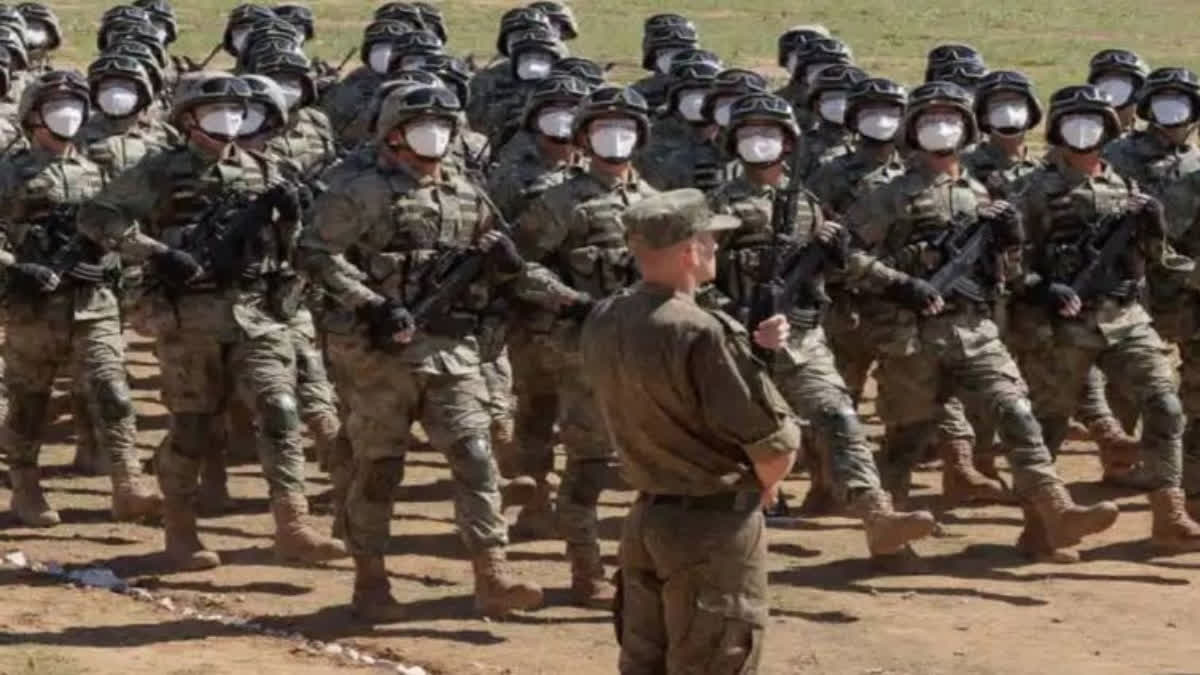Moscow:India scored a point on the first foreign visit of Prime Minister Narendra Modi after assuming office for the third term in the form of an assurance to discharge and facilitate the return of all Indian nationals working in the Russian army.
The issue that was bothering the Indian establishment found a solution after Prime Minister Narendra Modi raised the matter with Russian President Vladimir Putin.
Though India was expected to strongly take up the issue of Indians recruited into the Russia-Ukraine conflict after the death of two people, seeking their expeditious discharge, but there was apprehension about India's finding a breakthrough.
A smart diplomatic manoeuvre by External Affairs Minister S Jaishankar, who strongly raised the matter with his Russian counterpart Sergey Lavrov ahead of the Shanghai Cooperation Organisation (SCO) Summit also created a ground for Russia's nod.
It is believed that ndian nationals were duped to join Russian army to fight against Ukraine in Russia's war. The Ministry of External Affairs in June said two Indian nationals who had been recruited by the Russian Army were killed in the ongoing conflict between Russia and Ukraine.
"Several Indians have been pressed into services with the Russian Army, only when they come back we will know the full circumstances. But, whatever the circumstances are, to us it is unacceptable that Indian citizens find themselves in the army of another country in a warzone," Jaishankar told news agency ANI in an interview, adding that India is in touch with the Russian Defence Ministry over the matter.
According to MEA, among the Indian nationals who were working as support staff in the Russian troops, as many as 10 have returned to India while 20 others were allegedly duped into fighting for the Russian Army in the war against Ukraine on the pretext of lucrative jobs.
PM Modi, who is in Russia, will hold talks in the annual summit which is highest institutional dialogue mechanism between the prime minister of India and the president of Russia in the strategic partnership between the two countries.
